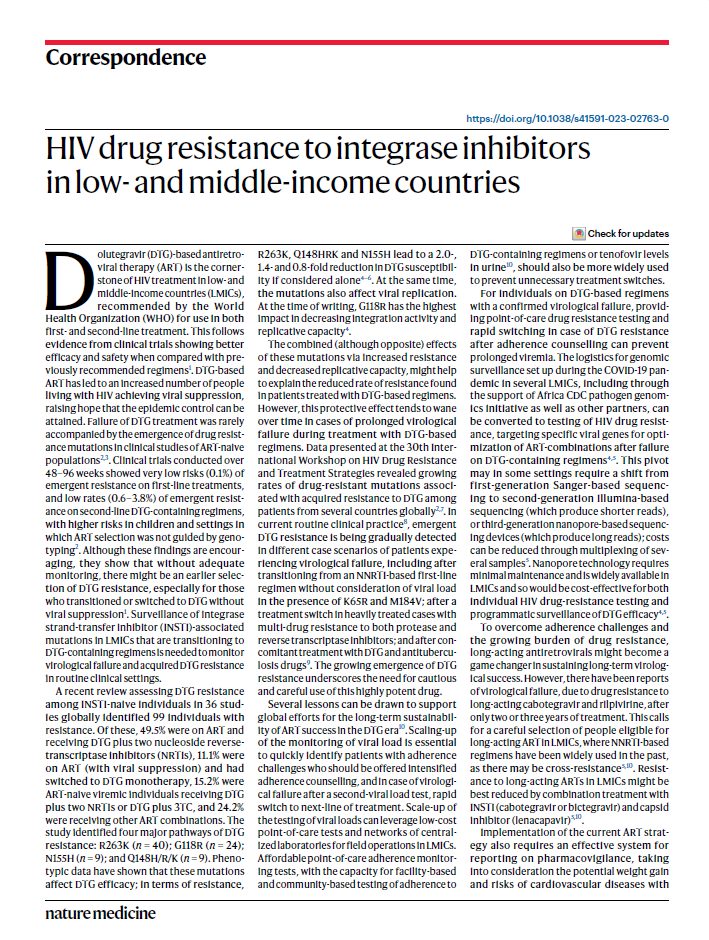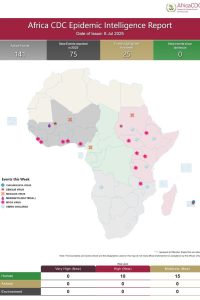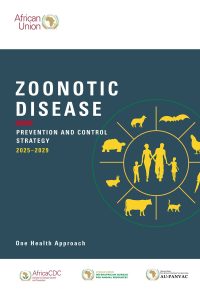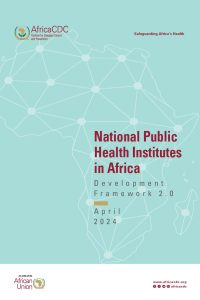
- Version
- Download 2262
- File Size 789.67 KB
- File Count 1
- Create Date 23 January 2024
- Last Updated 24 January 2024
HIV drug resistance to integrase inhibitors in low- and middle-income countries
In the landscape of antiretroviral therapies, the transition to tenofovir-lamuvidine-dolutegarvir in several African countries is being implemented regardless of viral load among people living with HIV. However, people with unsuppressed viral load during transition stand at risk of developing HIV resistance to dolutegravir. The present paper therefore, underscores the need to ensure viral load suppression as a key for transitioning or switching people living with HIV to a dolutegravir-containing therapy. The implementation of such policy in the antiretroviral treatment strategy of Africa may contribute to reducing mortality and achieving the global efforts to eliminate HIV as a pandemic by 2030.
Dolutegravir (DTG)-based antiretroviral therapy (ART) is the cornerstone of HIV treatment in low- and middle-income countries (LMICs), recommended by the World Health Organization (WHO) for use in both first- and second-line treatment. This follows evidence from clinical trials showing better efficacy and safety when compared with previously recommended regimens1. DTG-based ART has led to an increased number of people living with HIV achieving viral suppression, raising hope that the epidemic control can be attained. Failure of DTG treatment was rarely accompanied by the emergence of drug resistance mutations in clinical studies of ART-naive populations2,3. Clinical trials conducted over 48–96 weeks showed very low risks (0.1%) of emergent resistance on first-line treatments, and low rates (0.6–3.8%) of emergent resistance on second-line DTG-containing regimens, with higher risks in children and settings in which ART selection was not guided by genotyping2.
Although these findings are encouraging, they show that without adequate monitoring, there might be an earlier selection of DTG resistance, especially for those
who transitioned or switched to DTG without viral suppression1. Surveillance of integrase strand-transfer inhibitor (INSTI)-associated mutations in LMICs that are transitioning to DTG-containing regimens is needed to monitor virological failure and acquired DTG resistance in routine clinical settings. More
Attached Files
| File | Action |
|---|---|
| HIV drug resistance to integrase inhibitors in low- and middle-income countries | Download |






